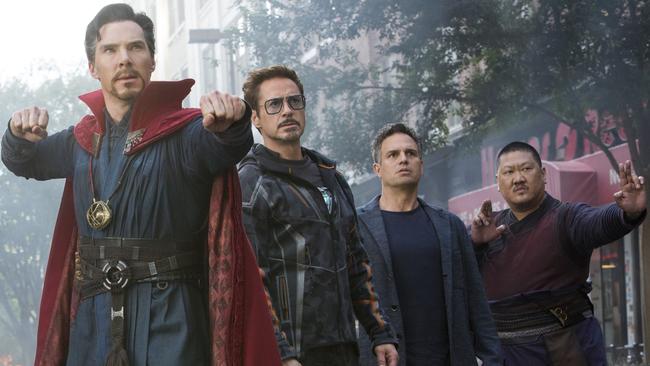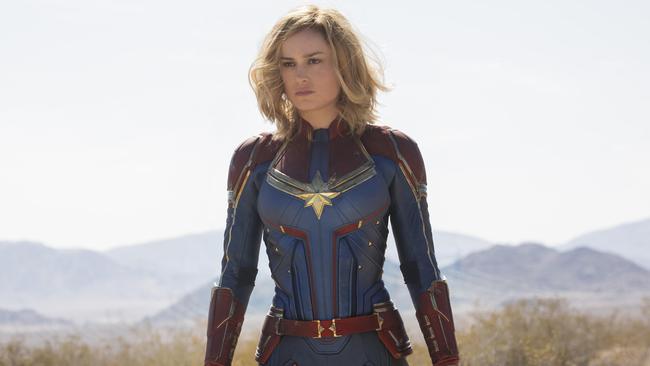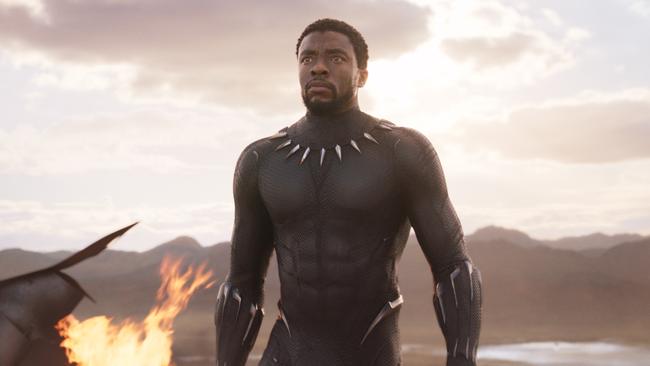How Marvel came to dominate the last decade
Over the past ten years, nothing has captivated movie goers quite like the adventures of Iron Man, Captain America, Thor and the gang. And the method behind the magic explains it all, writes James Wigney.
Rendezview
Don't miss out on the headlines from Rendezview. Followed categories will be added to My News.
Whether Martin Scorsese likes it or not, there’s no denying that Marvel movies supercharged the cinema world in the past decade.
The veteran, Oscar-winning director – who proved with his recent masterpiece The Irishman that he still knows a thing or two about filmmaking – recently opined that the all-conquering superhero franchise is “not cinema”, likening the movies instead to “theme parks”.
Many who never warmed to the juggernaut that the vast, interconnected Marvel Cinematic Universe has become might agree with that assessment, but if they are theme parks, there are surely many more who happily bought tickets and enjoyed the roller coaster rides of the fantastical adventures of Iron Man, Captain America, Thor and co.
Put simply, there is nothing in cinematic history that has come close to the success of the highest grossing film franchise of all time.
RELATED: Avengers: Endgame wins pop culture event of the year
Since 2008, the MCU has (so far) spanned 23 films, including this year’s Avengers: Endgame, which fittingly rounded out the decade by taking Avatar’s crown of the biggest box office hit ever, amassing a staggering $4 billion globally.

Led by visionary producer and Marvel Studios President Kevin Feige, it has done it in style – or many styles in fact. While detractors complain of a certain sameness to the films – superpowered heroes duke it out with similarly superpowered villains – the MCU has embraced many different shades in its journey far.
Feige has said he doesn’t believe in the “superhero genre” and the directors, often rising stars themselves, have obliged. Captain America: The Winter Soldier was wildly different from its predecessor. The first Ant-Man gave the franchise its first heist movie. And Kiwi maverick Taika Waititi rescued Thor by embracing the absurdity of it all and coming up with a gem for the Norse God’s third film that was bordering on out-and-out comedy.
MORE OPINION: Forget sex appeal. Female superheroes need a funny bone
After starting out as almost solely a white boys club, the MCU has been striking mainstream blows for diversity in the face of knuckle draggers for years now. Black Panther offered up the first black superhero, became a genuine cultural phenomenon, amassed more than $1.9 billion, and was the first superhero film to be nominated for the Best Picture Oscar.
And his year’s Captain Marvel, with Oscar-winning actor Brie Larson as the first solo female lead in the MCU, defied a toxic trolling campaign after the Oscar-winning actor called it a “big feminist movie”, to become a critical and commercial hit.

One of Feige’s key producing partners Victoria Alonso, a gay Latino woman, told the Herald Sun in 2018 that diversity was not only important to her and Marvel, it also makes economic sense to accurately reflect the real world on the big screen. And in the real world, more than half of the audience for Marvel’s films are women, and a significant portion are of Latino or African-American heritage.
“I address it in every moment that I can,” she said of the diversity challenge. “I always said that Black Panther and Captain Marvel are the legacy that I would leave for my daughter. That’s how important it is to me.”
MORE OPINION: The celebrities we need in the apocalypse
Although the journey began last decade, it was really the 2012 all-star team-up of The Avengers that set the MCU apart from the pack. Feige has said that from the beginning he had the idea that the different strands of the franchise might be woven together, but surely even he couldn’t have imagined just how dramatically it would change the face of cinema.
The concept of a shared universe with a built-in audience and potentially huge profits became hugely appealing – but not so easy to pull off.
Rival comic company DC tried its hand with their Batman/Superman/Wonder Woman/Aquaman crossovers, which turned out to be a pale imitation of the MCU and has since been mostly abandoned.

Universal Studios also had a stab at an interconnected “Dark Universe” featuring its classic creatures such as Frankenstein and Dracula, but it turned up its toes after Tom Cruise’s expensively underwhelming The Mummy was declared dead on arrival in 2017. Similarly, a “MonsterVerse” with King Kong, Godzilla and other fantastical beasts is looking decidedly endangered after an uncharacteristically meek performance from this year’s Godzilla: King of the Monsters. And even the most ardent fans would agree that the recently concluded Star Wars trilogy has been disjointed at best and hot mess at worst.
MORE OPINION: New trailer for The Rise of Skywalker a victory for the Star Wars trolls
All of which goes to show just how impressive and unprecedented the MCU has been in the past decade.
Fittingly, given the other seismic shift in cinema of the last ten years, the future of Marvel now embraces streaming and has eight streaming shows in the works that will introduce new characters such as Moon Knight and She-Hulk that will tie in with the movies.
If that all sounds like overkill, then maybe Marty is right and the film landscape will revert to “the cinema of human beings trying to convey emotional, psychological experiences to another human being”.
But Feige says he’s been asked about so-called superhero film fatigue for years and his answer is always the same: as long as they are good people will keep going to see them. Either way, don’t expect the theme park to close its doors any time soon.
James Wigney is the national Hit and Play editor.
